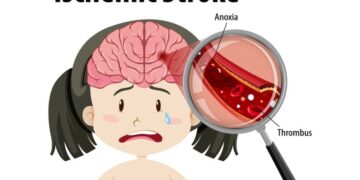Are testosterone-boosting dietary supplements effective? Not probable

Men who need to improve their libido or build body mass might also want to think twice earlier than using testosterone-boosting supplements — additionally called “T boosters” — as studies suggest those options to standard testosterone substitute remedy won’t have elements to aid their claims, in keeping with Mary K. Samplaski, MD, assistant professor of scientific urology at the Keck School of Medicine of USC.

“Many dietary supplements on the market merely contain nutrients and minerals but do not do anything to improve testosterone,” says Samplaski. “Often, human beings may be vulnerable to the marketing component of these products, making it hard to tease out what is a myth and what’s tthe truth.” Testosterone is the number one male sex hormone, and why guys produce sperm and feature Adam’s apples. It’s also why men expand extra “masculine” capabilities like bulging muscle tissue, a deep voice, wide shoulders, and a bushy chest. After age 30, most men experience a gradual decline in testosterone, now causing those features to decrease or new signs and symptoms to arise, like erectile dysfunction. In an attempt to show again the palms of time, a few guys will flip to T boosters.
Using a dependent evaluation method, Samplaski and a team of researchers explored the lively ingredients and marketed claims of fifty T-boosting supplements. Their findings had been published as an authentic article in The World Journal of Men’s Health. Researchers executed a Google seek with the search term “Testosterone Booster,” therefore mimicking average net research for someone looking to increase testosterone levels, after which they selected the first 50 products that came up in their seek. Then, the team reviewed the posted medical literature on testosterone and the 109 additives located in the supplements. Zinc, fenugreek extract, and vitamin B6 have been 3 of the maximum common additives in supplements.
The team also compared the content material for every supplement with the Food and Drug Administration’s (FDA) Recommended Daily Allowance (RDA) and the higher tolerable intake level (UL) as set by the Institute of Medicine of the National Academy of Science. Of the one hundred fifty dietary supplements, researchers came across sixteen general claims to advantage patients, consisting of claims to “boost T or lose T,” “build body lean mass or muscles,” or “boost sex power or libido.” While 90% of the T booster supplements claimed to reinforce testosterone, researchers discovered that much less than 25% of the supplements had facts to support their claims. Many additionally contained excessive doses of nutrients and minerals, on occasion, in amounts greater than the tolerable limit.
Unlike capsules, dietary supplements aren’t meant to treat, diagnose, save you, or remedy diseases, consistent with the FDA. As such, Samplaski would really like to look at greater laws around testosterone-boosting dietary supplements to shield consumers. She also would love to explore disseminating handouts to her patients with a more accurate record,d s with the hope that it encourages sufferers to seek a medical expert for low testosterone troubles. While nobody can get away from the consequences of getting older, Samplaski says there is something men can do to deal with their worries. “The most secure and handiest manner for men to boost low testosterone levels is to speak with a medical expert or a nutritionist.”













